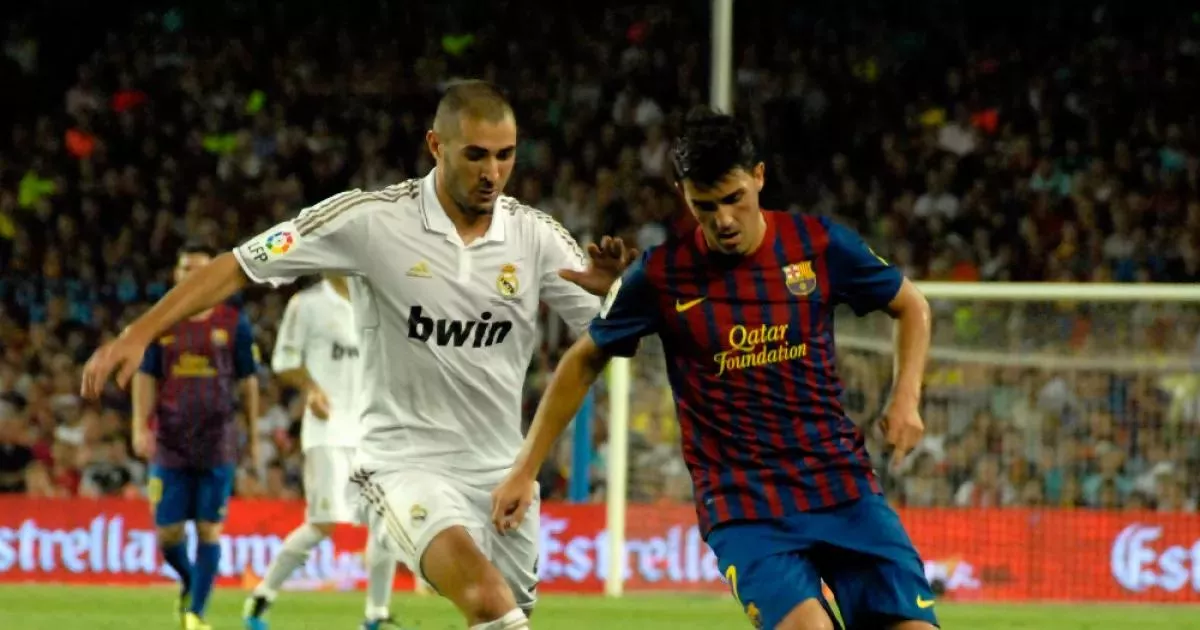El Clásico is the name for any football match between Barcelona and Real Madrid. Originally denoting Spanish championship games, it now encompasses all matches between the clubs, including those in the Champions League, Copa del Rey, and Supercopa de España. The rivalry is known for its intensity and large global audience, often featuring memorable, and sometimes mocking, goal celebrations.
1936: Execution of Josep Sunyol
In 1936, during the coup d'état by Francisco Franco, the president of Barcelona, Josep Sunyol, was arrested and executed without trial by Franco's troops.
1939: Start of Franco's Rule
In 1939, Franco's rule began, influencing the activities and on-pitch results of both Barcelona and Real Madrid.
June 1943: Real Madrid beats Barcelona 11-1
On June 13, 1943, Real Madrid beat Barcelona 11–1 at the Chamartín in the second leg of the Copa del Generalísimo semi-finals, amidst controversy and allegations of intimidation. The first leg saw Barcelona winning 3-0.
September 1953: Barcelona president forced to resign
In September 1953, the president of Barcelona was forced to resign due to discontent over the agreement to share Alfredo Di Stéfano with Real Madrid.
1954: Di Stéfano to play for Real Madrid and Barcelona
In 1954, it was decided that Alfredo Di Stéfano would play the 1953-54 and 1955-56 seasons in Madrid as part of a deal to share him between Real Madrid and Barcelona.
1955: Di Stéfano to play for Real Madrid and Barcelona
In 1955, it was decided that Alfredo Di Stéfano would play the 1954-55 season in Barcelona as part of a deal to share him between Real Madrid and Barcelona.
1956: Di Stéfano to play for Real Madrid and Barcelona
In 1956, it was decided that Alfredo Di Stéfano would play the 1956-57 season in Barcelona as part of a deal to share him between Real Madrid and Barcelona.
1957: Minister Castiella's view on Real Madrid
In 1957, Fernando Maria Castiella, who served as Minister of Foreign Affairs under Franco, noted that Real Madrid is the best embassy we have ever had.
1959: Real Madrid triumph in European Cup
In 1959, Real Madrid triumphed in the European Cup en route to their fifth consecutive title, marking a significant moment in the rivalry with Barcelona.
1960: Real Madrid vs. Barcelona in European Cup
In 1960, Real Madrid and Barcelona met twice in the European Cup, with Madrid triumphing en route to their fifth consecutive title and Barcelona prevailing en route to losing the final.
July 1968: Barcelona wins Copa del Generalísimo final
On July 11, 1968, Barcelona beat Real Madrid 1–0 in the Copa del Generalísimo final at the Santiago Bernabéu, with controversy over refereeing decisions and angry Real Madrid fans throwing bottles at the referee and Barcelona players.
1969: End of Castiella's term as Minister of Foreign Affairs
In 1969, Fernando Maria Castiella's term as Minister of Foreign Affairs under Franco ended, during which he noted the importance of Real Madrid for the regime's international image.
1975: Death of Franco
In 1975, Francisco Franco died, leading to the Spanish transition to democracy and marking the end of an era that heavily influenced Spanish football.
1980: Cunningham receives applause from Barcelona fans
In 1980, Laurie Cunningham became the first Real Madrid player to receive applause from Barcelona fans at Camp Nou after excelling during the match.
1980: Foundation of Ultras Sur
In 1980, Ultras Sur, a far-right-leaning Real Madrid ultras group, was founded, contributing to the growing hooliganism associated with the rivalry.
1981: Foundation of Boixos Nois
In 1981, the Barcelona ultras group Boixos Nois was founded, initially left-leaning but later far-right, contributing to the growing hooliganism associated with the rivalry.
June 1983: Maradona applauded by Real Madrid fans
On June 26, 1983, Diego Maradona's goal during the Copa de la Liga final led to applause from many Real Madrid fans inside the Santiago Bernabéu stadium.
April 1988: Real Madrid receives pasillo from Barcelona
In April 30 1988, Real Madrid received a pasillo (guard of honor) from Barcelona during El Clásico, as Real Madrid had won the league championship in the previous round.
June 1991: Barcelona receives pasillo from Real Madrid
In June 8 1991, Barcelona received a pasillo (guard of honor) from Real Madrid during El Clásico, as Barcelona had won the league championship two rounds before.
2000: Pérez offers Figo deal to sign with Real Madrid
In 2000, Real Madrid's then-presidential candidate, Florentino Pérez, offered Barcelona's vice-captain Luís Figo a deal to sign an agreement binding him to Madrid if he won the elections, sparking controversy and denials from Figo.
2002: Real Madrid wins Champions League semi-final against Barcelona
In 2002, Real Madrid won the UEFA Champions League semi-finals against Barcelona with a 3–1 aggregate win, dubbed by Spanish media as the "Match of the Century".
2002: Figo's return to Camp Nou with Real Madrid
In 2002, during Figo's return to Barcelona in a Real Madrid shirt, he was subjected to intense animosity, with objects including a pig's head thrown at him during the Clásico at Camp Nou, highlighting the intensity of the rivalry.
November 2005: Ronaldinho receives standing ovation from Real Madrid fans
In November 2005, Ronaldinho became the second Barcelona player to receive a standing ovation from Real Madrid fans at the Santiago Bernabéu after scoring two goals in a 3–0 win.
May 2008: Real Madrid receives pasillo from Barcelona
In May 7 2008, Real Madrid received a pasillo (guard of honor) from Barcelona during El Clásico, as Real Madrid had won the league championship.
2010: Iniesta's World Cup-winning goal
In 2010, Andrés Iniesta scored the World Cup-winning goal, contributing to his popularity throughout Spain.
November 2015: Iniesta receives applause from Real Madrid fans
On November 21, 2015, Andrés Iniesta became the third Barcelona player to receive applause from Real Madrid fans while being substituted during a 4–0 away win, following his World Cup-winning goal in 2010.
May 2018: Real Madrid refuses to perform pasillo for Barcelona
In May 2018, Real Madrid refused to perform the pasillo (guard of honor) for Barcelona even though the latter had already wrapped up the championship a round prior to their meeting, citing Barcelona's refusal to do so earlier.
2024: Forbes ranking of Real Madrid and Barcelona
In 2024, Forbes ranked Real Madrid and Barcelona among the most valuable football teams in the world, with Real Madrid in first place and Barcelona in third.
May 2025: Head-to-head results as of May 11, 2025
As of May 11, 2025, Real Madrid leads in head-to-head results in official competitive matches with 105 wins to Barcelona's 104, with 52 draws.
Mentioned in this timeline
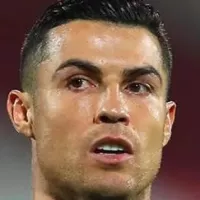
Cristiano Ronaldo often nicknamed CR is a Portuguese professional footballer...
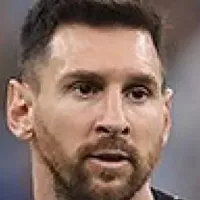
Lionel Messi is an Argentine professional footballer widely considered one...

Ronaldinho Ga cho a Brazilian former footballer is considered one...
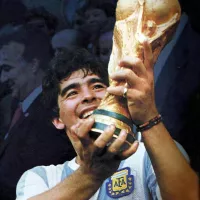
Diego Maradona was an Argentine professional football player and manager...
La Liga officially LaLiga EA Sports is the top professional...

Football is a family of team sports primarily involving kicking...
Trending
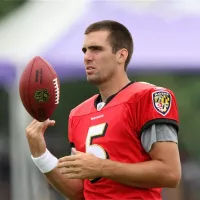
3 months ago Joe Flacco's Status Questionable for Bengals vs. Bears Game, Planning to Start
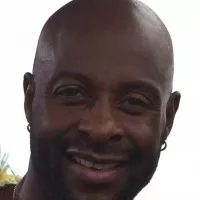
Jerry Rice is considered the greatest wide receiver in NFL history playing seasons and winning three Super Bowl titles with...
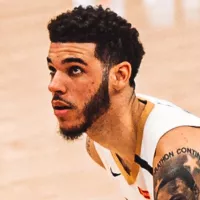
10 months ago Lonzo Ball Injury Update: Ruled Out of Play-in Tournament, Creating Uncertainty for Bulls
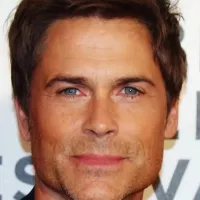
2 months ago Rob Lowe's 'Youngblood' getting a reboot by Hubert Davis; Release date set.
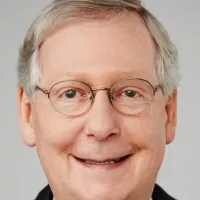
Addison Mitchell McConnell III is a prominent American politician and attorney currently serving as the senior United States senator from...
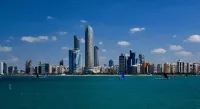
3 months ago Prince Andrew considers exile in Abu Dhabi palace or Highland castle sanctuary.
Popular

Thomas Douglas Homan is an American law enforcement officer who...

Melania Trump a Slovenian-American former model has served as First...

William Franklin Graham III commonly known as Franklin Graham is...

Jupiter is the fifth and largest planet from the Sun...

XXXTentacion born Jahseh Dwayne Ricardo Onfroy was a controversial yet...

Instagram is a photo and video-sharing social networking service owned...
